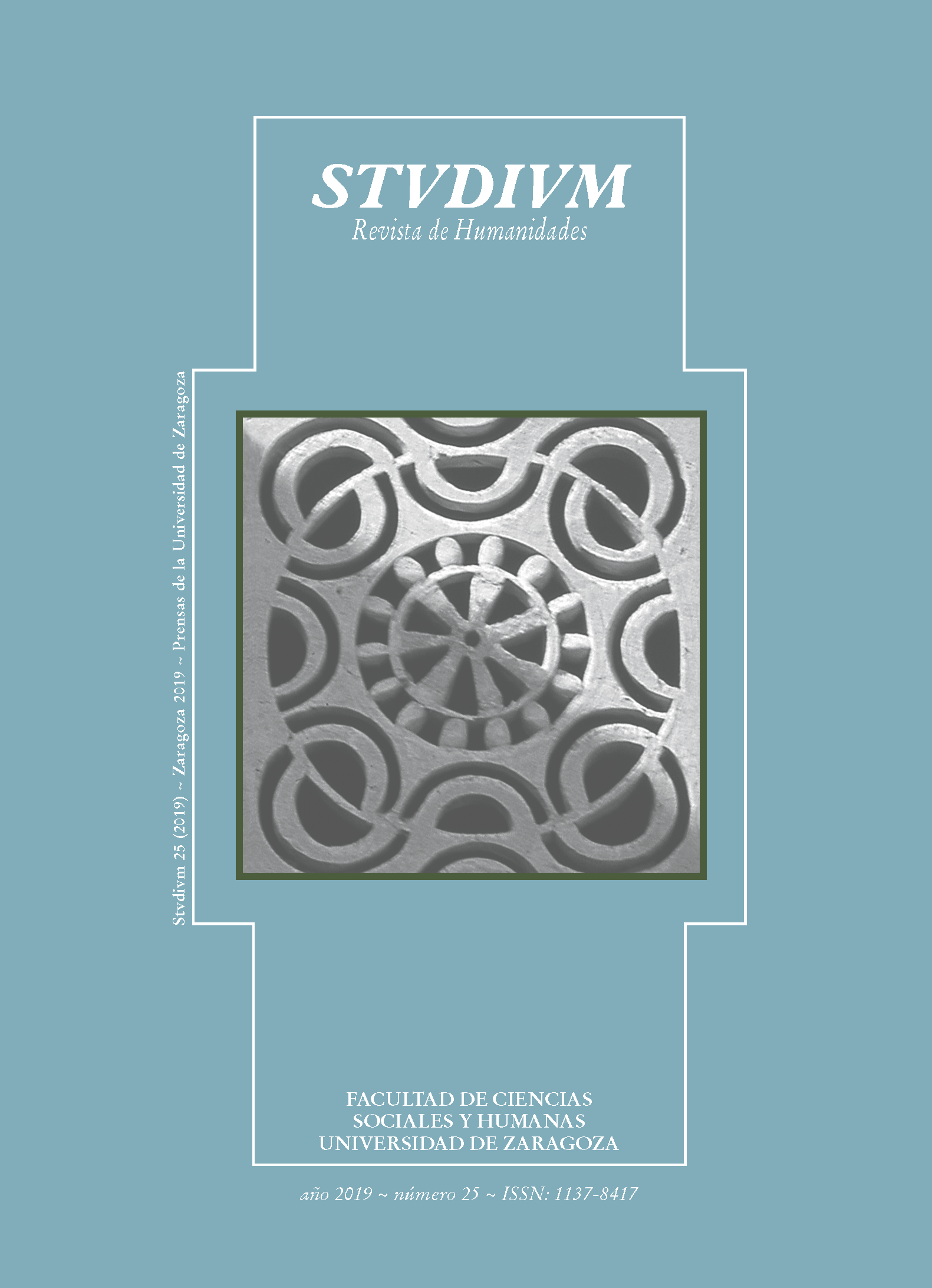“Matrimonio y mortaja del cielo bajan”: ¿es la muerte un destino inexorable en Los pazos de Ulloa (1886) de Emilia Pardo Bazán?
“Matrimonio y mortaja del cielo bajan” (Both Marriage and Shroud from Heaven Come Down): An Inexorable Fate in Emilia Pardo Bazán’s Los pazos de Ulloa (1886)?
DOI:
https://doi.org/10.26754/ojs_studium/stud.2019253981Keywords:
Los pazos de Ulloa, The House of Ulloa, Emilia Pardo Bazán, virginity, maternity, marriage, civilization and barbarism, civilización y barbarie, maternidad, virginidad, matrimonio, matrimonio y mortaja del cielo bajanAbstract
Resumen
Este ensayo analiza la manera tan negativa en que Emilia Pardo Bazán representa al matrimonio en Los pazos de Ulloa (1886). Se intenta mostrar que el escepticismo de la autora, al presentar esta institución social como un proyecto fallido, constituye una protesta feminista contra la soflama masculina hegemónica del siglo xix, que aceptaba como válido únicamente el vínculo conyugal bendecido por la Iglesia y/o sancionado por el Estado. Con este objetivo, se estudian algunos factores que afectaban las relaciones maritales de las mujeres de aquella época, tales como la percepción que se tenía de la mujer—como agente civilizador y como inductora del mal—, las expectativas sociales de la mujer casadera y casada, el alto valor atribuido a la virginidad prenupcial y a la maternidad, la doble moral en el ejercicio de la sexualidad, la subordinación de la mujer al hombre y la violencia doméstica física y mental.
Palabras clave: Los pazos de Ulloa, Emilia Pardo Bazán, virginidad, maternidad, matrimonio, civilización y barbarie.
Abstract
In this essay, I analyze Emilia Pardo Bazán's negative portrait of marriage in The House of Ulloa (1886). I attempt to show that the author's skepticism of this social institution, which she presents as a failed project, is a feminist protest against the 19thcentury hegemonic masculine discourse that considered Catholic marriage and/or legal marriage as the only acceptable forms of a conjugal bond. With that intention, I comment on several key factors that affected women’s marital relationships at that time. For example, the dual perception of women both as civilizing agents and as a temptation to sin and subsequent perdition, the social expectations from a maiden and from a married woman, the high value attributed to prenuptial virginity and of maternity, the double standards for men and women in the expression of their sexuality, the subordination of women to men, and domestic physical and mental violence, among other.
Key words: Los pazos de Ulloa, The House of Ulloa, Emilia Pardo Bazán, virginity, maternity, marriage, civilization and barbarism.
Downloads
Downloads
Published
How to Cite
Issue
Section
License
Copyright (c) 2020 Frank Otero Luque

This work is licensed under a Creative Commons Attribution 4.0 International License.
Aquellos autores/as que tengan publicaciones con esta revista, aceptan los términos siguientes:
- Los autores/as conservarán sus derechos de autor y garantizarán a la revista el derecho de primera publicación de su obra, el cuál estará simultáneamente sujeto a la Licencia de reconocimiento de Creative Commons que permite a terceros compartir la obra siempre que se indique su autor y su primera publicación esta revista. (CC-BY)
- Los autores/as podrán adoptar otros acuerdos de licencia no exclusiva de distribución de la versión de la obra publicada (p. ej.: depositarla en un archivo telemático institucional o publicarla en un volumen monográfico) siempre que se indique la publicación inicial en esta revista.
- Se permite y recomienda a los autores/as difundir su obra a través de Internet (p. ej.: en archivos telemáticos institucionales o en su página web) antes y durante el proceso de envío, lo cual puede producir intercambios interesantes y aumentar las citas de la obra publicada. (Véase El efecto del acceso abierto).


